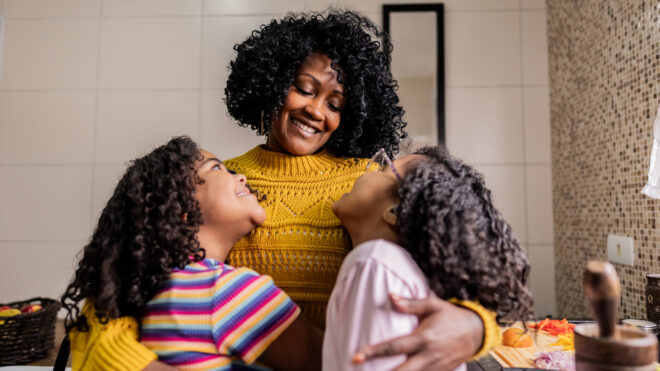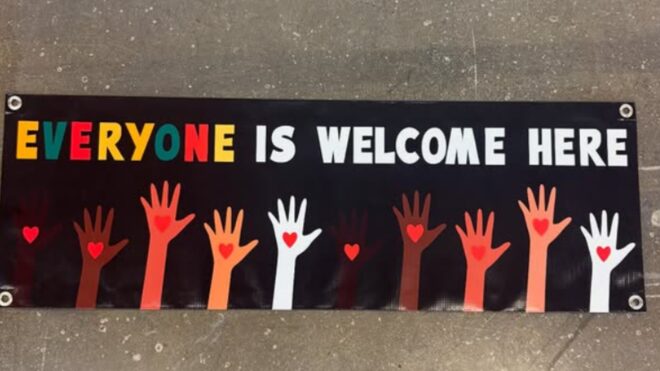Any parent whose marriage has ended is concerned that divorce has ruined their children. It is a real and crippling fear, one that is fueled by countless articles stating how your child will end up a drop-out, sickly, anxious, in jail, and on drugs because you got divorced. But how much of that is reality and how much is media hype? I'm divorced with two children, and I know I didn't ruin them.
There are benefits of divorce that far exceed having two bedrooms, two sets of toys, and parents who (sometimes) compete for the coolest award.
The experts agree — divorce doesn't have to harm kids. In fact, there are ways kids of divorce actually benefit from having parents who decide to go their separate ways:
1. They learn positive ways to problem solve.
A bad marriage is a terrible example for kids, so it stands to reason that removing that example would be good for kids. Statistics show that when parents have a "high conflict" marriage their children "fared better in adult relationships if their parents got a divorce."
After all, kids are very aware when there is a problem in the home. When those issues are resolved through divorce, they see firsthand how to hanlde the stress and anger.
Deesha Philyaw and her ex-husband Michael Thomas run Co-Parenting 101 — together, the divorced couple have helped many families focus on what matters most after divorce "Some adults report that they wish their parents had divorced (or had divorced sooner) rather than staying together and making each other and their children miserable with ongoing conflict," Philyaw explains. "Divorcing can free people who are good parenting partners to engage each other only as co-parents, without the demands of intimacy or the frustration of unmet expectations related to marriage/relationships.
More From The Stir: How to Answer the 3 Most Important Questions Kids Ask About Divorce
"Divorce can be a type of conflict resolution: disengagement. Kids can learn from their parents that some problems can't be fixed, and that peaceful disengagement is an alternative to remaining mired in conflict and chaos."
2. They have more one-on-one time with each parent.
Philyaw stresses the importance of co-parenting. "Some co-parents report that divorce and co-parenting result in a greater degree of involvement and hands-on parenting by fathers," Deesha shared.
The research backs that up: kids in shared custody situations tend to fare better than those raised by a single parent with no interaction with a second, absent, parent. What comes out of co-parenting? The kids end up having a lot of one-on-one time with each parent.
That's important, according to a study published in the April 2015 Journal of Marriage and Family. The researchers said the amount of time parents spend with their kids between the ages of 3 and 11 has little to no relationship with how they turn out — meaning it's OK for kids to spend time apart from their parents in split custody situations.
On the other hand, the researchers said quality time — the time parents spend engaged one-on-one with their children had a huge impact on kids.
3. There will be more happiness.
A recent study calmed many fears (while bringing up new ones) saying that it's not a two-parent household that is key for a child's happiness, it's financial security. Money stress is awful, and while we all have it to some degree, it's imperative we realize that if a child is able to live in a clean home with food and love, having two parents isn't key to their well-being.
This is especially comforting to single moms or single dads who are doing it alone without the help of the other parent because that person is an absentee. Of course, being wealthy isn't the point here; it's making sure our children are fed, clothed, and loved. Children benefit from love and structure, so as long as that is established, there will be happiness.
What's more, marital strife playing out in front of children has been proven to plague kids for years. According to one 2012 study from the University of Notre Dame, parents who fight in front of their kindergarten-aged children could be setting them up for depression, anxiety and behavioral problems as adolescents.
A divorce takes kids out of that situation … and enables them to be happier.
4. It can build communication skills.
Living in two households gives kids good communication skills. There is a lot to keep track of with children — soccer matches, piano practice, swimming lessons — and those dates and times must be communicated to keep everyone on their routine. While it's important for divorced parents to not make their child the messenger (the parents must also have good communication skills with each other and the kids), it's good for everyone to be communicative with each other.
The National Institutes of Health reports that children of divorce "may be more open to communication through books, workbooks, stories, play, and drawings." But the key here is that they want to communicate, and need to, and we can encourage that not only through talking, but other avenues, allowing our kids to be more expressive. My children (twins, who are 5) love to draw and create books, which are often a few pieces of paper stapled together that tell a story. They share their stories of going to daddy's house and also being with me. They often draw us all together. That is so comforting to me for them to communicate that — I know they see us as a family, because we still are.
5. They are stronger, have a better life.
A Dartmouth study on the effects of divorce on kids, noted that "75-80 percent of children develop into well-adjusted adults with no lasting psychological or behavioral problems." Further, "[kids of divorce] achieve their education and career goals and have the ability to build close relationships." It was also reported that as many as 42 percent of young adults whose parents have divorced "received higher well-being scores as compared to young adults from non-divorced families.
Children are resilient, and strong. In life there are often obstacles, issues, and problems, but we can solve them — even kids can work through them and it can make them even stronger and able to excel.
More From The Stir: I Can't Co-Parent With My Ex So We Do the Next Best Thing
When I was first getting divorced, there was a part of me that worried that I failed at parenting. But then I realized I wasn't. Neither was my ex. The negative things we read about the effect of divorce on kids is rampant, but it just isn't true for every child of divorce. Some children excel at school, others do not. Some kids are troubled, others are not. Whether or not their parents are together isn't part of that equation. And remember, it's all about how well we divorce, not if we split up or not. It's all about keeping the real meaning of family — love — intact.
What have you learned from divorce and parenting? How has your family navigated the changes?
Image via Carissa Rogers/Flickr




